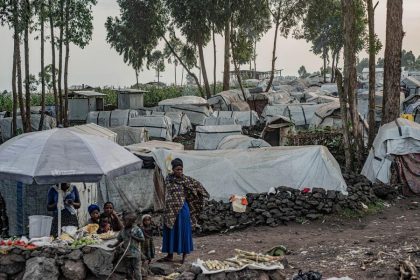It has been an eventful few days in Africa this past week.
First, there was the resignation of Mr Jacob Zuma as president of South Africa on Wednesday night, February 14. His departure followed a dramatic stand-off with his party, the African National Congress (ANC) that threatened to end in a vote of no confidence.
Zuma was defiant to the very end as he had been throughout his nine-year rule. He had been accused numerous times of multiple offences, but somehow had survived. Finally, his luck ran out.
The following day Mr Cyril Ramaphosa was elected President of South Africa by the National Assembly and sworn in by the Chief Justice. On Friday he gave his inaugural State of the Nation Address outlining his vision and programme for the country.
The second was the death of Morgan Tsvangirai, Zimbabwe’s long time opposition leader, on the day Jacob Zuma left office. Tsvangirai’s departure (from this world), like that of Robert Mugabe (from office) before him, marks the end of opposition politics in Zimbabwe as they have been practiced to date. Like most opposition politicians in Africa, he had been primarily opposed to Mugabe. The accession of President Emmerson Mnangagwa seems to have stolen the thunder from the opposition, at least for the time being.
The third event was the resignation of Ethiopia’s Prime Minister Hailemariam Desalegn on the same day Ramaphosa was elected President of South Africa. His resignation, unlike that of Jacob Zuma, which was drawn out and triggered by issues of personal integrity, was rather sudden and had more to do with political turbulence that has rocked Ethiopia for the last three years.
In a sense, it is easy to appreciate Desalegn’s problems. He stepped into shoes too big to fill. His was a difficult act, succeeding Meles Zenawi, in many ways the architect of today’s Ethiopia. Zenawi had fashioned an independent state-driven development path for the country and crafted a federal structure based on nationalities that he thought was the answer to the fractious regional politics. As part creator therefore, he had the vision, intellectual and moral clout to hold the various nationalities together.
The three events happening at the same time may have been pure coincidence, but they have a significance that goes beyond their borders.
South Africa is an important country because of its history, strong economy and military. Events happening there have an impact on the rest of the continent. But in the last twenty four years, it has been both a source of inspiration and frustration.
The end of apartheid promised freedom and prosperity for South Africans, and leadership for the rest of Africa. For a while that promise held.
Under Nelson Mandela, South Africa was a force for good. He used his immense moral stature to condemn as evil such acts as the Genocide against the Tutsi in Rwanda and to mediate in conflicts in such places as Burundi.
His successor, Thabo Mbeki, had a big vision for Africa. He was behind the resurgence of the African Renaissance narrative and the formation of a development blueprint for Africa, the New Economic Partnership for Africa’s Development (NEPAD).
Both, however, failed to bring prosperity to the majority black people in South Africa.
Then Zuma came along and squandered the moral and diplomatic capital his predecessors had built. Where they had mediated, he meddled. Where they had led, he retreated. Where they had persuaded, he bullied. Where they had shown respect, he displayed arrogance. South Africa’s international standing suffered as a result.
Not many in Africa will mourn his departure. Instead all are looking to Ramaphosa to re-establish South Africa’s leadership and respect for others, and a better understanding in international relations.
Ethiopia is another powerful country, especially in Eastern Africa, and commands a lot of respect, first as a country that has never been colonised and second for a strong and fast developing economy, mainly driven by home-grown initiatives and the state and not heavily dependent on foreign capital. Even the experiment with managing its diverse nationalities is worth serious attention, despite recent problems.
In the three countries, political crises have been managed without going into panic mode and causing upheavals.
And so the ANC can afford to recall the president without fear that this would weaken it and give the opposition some advantage.
The ruling Ethiopia People’s Revolutionary Democratic Front (EPRDF) in Ethiopia can accept the resignation of the prime minister fully knowing that its right to appoint his successor cannot be seriously challenged even with the contending internal factions.
The creeping coup in Zimbabwe could never really threaten ZANU-PF’s hold on power. It actually came to strengthen it.
The reason is because they are all ruled by liberation/revolutionary movements with a long history of struggle during which they developed strong discipline and internal mechanisms to manage divisions, dissent and other crises. This is a characteristic they share with other liberation movements that are now ruling parties in some other African countries, and provides lessons for others.
These events also show a new tendency in the management of political transition. Negotiated departure is increasingly becoming an attractive alternative to coup d’etats or long periods of instability. It is also an internal matter, with minimal or no external intervention.
In a sense this marks progress in democratic practice. You can talk and reach an agreement without resorting to force. National interest is beginning to matter over personal egos. The only condition is that this happens in countries with strong political parties built over time, and not in those where there are constantly shifting formations built around individuals.
A sense of optimism in Africa’s democratic future is not misplaced.
JOSEPH RWAGATARE
The Express News










